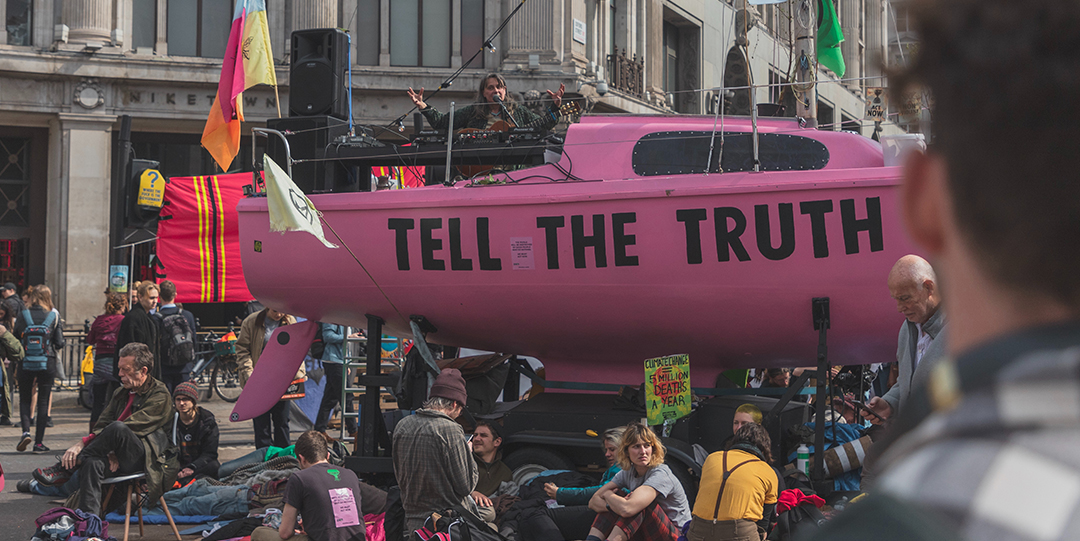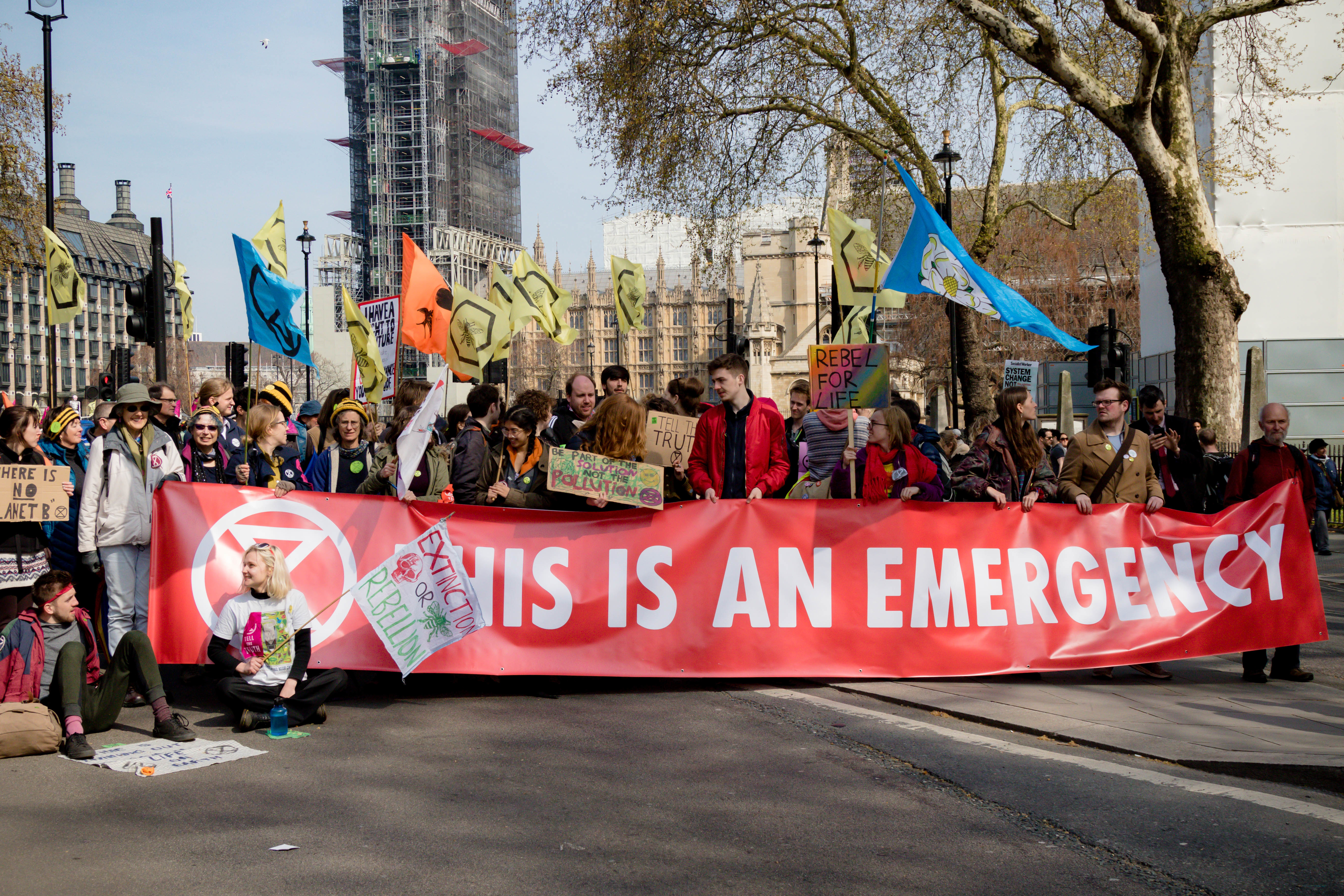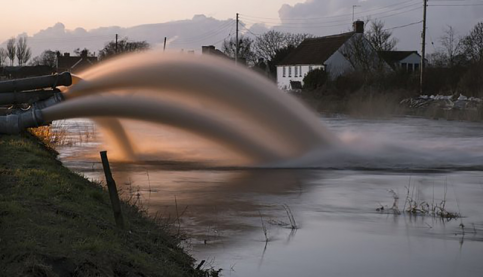Disclaimer: This is an opinion article. Please note the views and opinions expressed in this article are those of the authors and do not necessarily reflect the view or position of the faculty the author is associated with, or of The Open University.
It is widely understood that the actions the UK has so far taken concerning climate change are not sufficient to meet its own climate goals of keeping warming below 1.5 degrees. In contrast to what has already been delivered, the scale of the changes needed in the economic and social systems represent a massive undertaking to achieve them within the 12 year window recommended in the IPCC 2018 climate change report. This demands a level of attention in the UK that is comparable to the UKs war effort during World War II. Such efforts must focus not just on immediate carbon targets but engage more comprehensively with the need for deep adaptation as highlighted by Jem Bendell and his work in this area.
With other issues such as Brexit and re-election garnering all the attention in parliament, it is likely that there will be continued delays in addressing climate change. Over the next 12 years these delays will become more and more dangerous. The longer there is continued inaction the more difficult it will become to maintain climate change below the critical 1.5 degree threshold in future. This crosses into the territory where humanity will risk causing irreversible climate tipping points with catastrophic consequences to all life on earth including humans. With a cycle of national elections every five years it is difficult to see how the ‘normal’ parliamentary democracy could achieve urgent carbon neutrality. Consequently, as regards pressing time scales in climate change, the political system is failing the people living in the UK now and in future generations.
Adaptations to climate change will require sacrifices to current lifestyles, including divestment from fossil fuels and other carbon-emitting lifestyles.
The disruption caused by Extinction Rebellion (XR) is an attempt to break the political deadlock that prevents an effective political response. More specifically XR is making three demands:
- The first is calling for politicians to tell the truth about the magnitude of the climate crisis by declaring a climate and ecological emergency. This approach has already had a response from over 70 local governments with numerous councils and boroughs declaring a climate emergency. Time will now tell to what extent councils are engaging and to what extent the declarations are only rhetoric. In the case of the latter, it seems more or less inevitable that local XR groups will hold their councils to account. However, it requires the input from central government since local action by councils will need substantial support in carbon divestment. An important aspect of this demand is the commitment of the government to work with other organisations (including local government, businesses, and transnational organisations, such as the EU and UN).
- XR demand a target of carbon neutrality by 2025. This may seem an overly ambitious goal, but underlines the urgency of the changes required, while also allowing for some slippage to meet these goals at least by 2030.
- The final demand is the call for citizens’ assemblies. The aim here is to ensure that the public is represented, not through abdicating power to elected representatives, but instead to directly participate in the decision-making process on climate change measures.
 Extinction Rebellion protest in Oxford Circus, London.
Extinction Rebellion protest in Oxford Circus, London.
A key advantage of citizens’ assemblies is that they can bypass the perceived imposition of painful climate adaption by inviting participation and informed consent. Adaptations to climate change will require sacrifices to current lifestyles, including divestment from fossil fuels and other carbon-emitting lifestyles. What is noteworthy about citizens’ assemblies as envisioned by XR is that they would also serve educational and developmental purposes, including the development of critical thinking and use of balanced information that is based on evidence. In this way, they could be viewed as a means to combat the problems of fake news and pseudoscientific and conspiracy thinking that is prevalent in modern politics.
Assemblies are constituted by sortition, a process of randomly selecting a representative selection of citizen to participate. The process of citizen assemblies is fairly unknown in the UK but practised in Ireland, Holland and parts of Canada. In 2017 in the UK a citizen assembly was held deliberating Brexit but the recommendations were ignored by government.
During the XR event in London in April 2019 several assemblies were held by XR throughout the week. From my first experience of this process, a major aspect of citizen assemblies is that they are based on dialogue, which appears to be inspired by the methods pioneered by the physicist David Bohm. Dialogue in the context of XR citizen assemblies provides a basis for listening to all participants, in a non-judgemental and inclusive way and is achieved through a combination of small group work and feedback to a larger platform, including voting by all those present, on sets of proposals developed by the assembly.
Given the precarity of earth’s climate systems reaching tipping points within a single lifetime it is becoming clear that a radically different approach to the issue is needed. The kind of egalitarian, participatory politics championed by XR, grounded in climate realism, must be taken seriously.









Rate and Review
Rate this article
Review this article
Log into OpenLearn to leave reviews and join in the conversation.
Article reviews